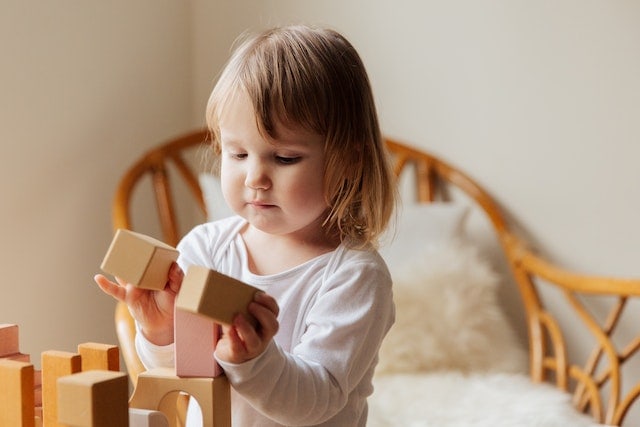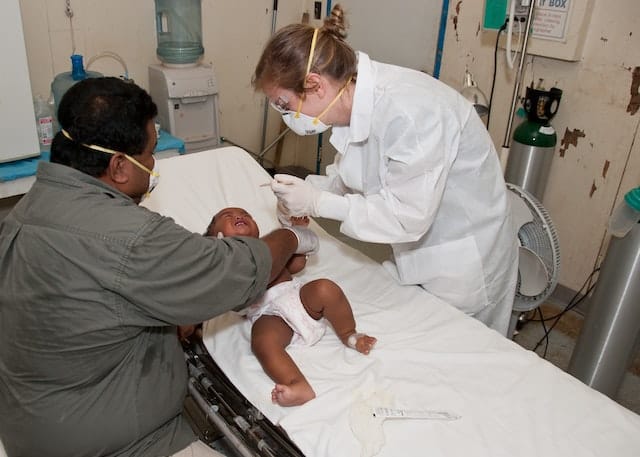Babies are often referred to as newborns during the first few weeks of their lives. However, there comes a point where they are no longer considered newborns. So, when exactly is a baby no longer a newborn?
Understanding newborn development is crucial in determining when a baby is no longer a newborn. During the first few weeks of life, newborns rely heavily on their caregivers for everything from feeding to diaper changes.
As they grow and develop, they become more independent and are able to do things on their own.
The transition from newborn to infant is not always clear-cut and can vary depending on the baby.
However, there are certain physical changes and development milestones that can be used to determine when a baby is no longer a newborn.
Key Takeaways
- Understanding newborn development is crucial in determining when a baby is no longer a newborn.
- The transition from newborn to infant is not always clear-cut and can vary depending on the baby.
- Physical changes and development milestones can be used to determine when a baby is no longer a newborn.
Understanding Newborn Development
Newborns are typically defined as babies who are less than 28 days old. During this time, they undergo significant changes in their growth and development. Understanding these milestones can help parents and caregivers provide appropriate care for their newborns.
Physical Development
Newborns are born with reflexes that help them survive and adapt to their environment. They have a strong grasp reflex, which allows them to hold onto objects placed in their hands.
They also have a rooting reflex, which helps them find their mother’s nipple for feeding. Newborns are not able to hold their head up on their own and require support when being held.
Newborns typically lose weight in the first few days after birth, but they should regain their birth weight by two weeks of age. It is important to monitor their weight gain to ensure they are getting enough nutrition.
Cognitive Development
Newborns are born with a brain that is ready to learn. They are able to recognize their mother’s voice and smell and can distinguish between different sounds. They are also able to track objects with their eyes and have some visual preferences.
Emotional Development
Newborns are able to express their emotions through crying, fussing, and facial expressions. They are also able to experience different emotions such as pleasure, discomfort, and distress.
Sleep
Newborns sleep a lot, typically between 16 and 17 hours a day. However, they do not have a regular sleep schedule and may wake up frequently throughout the night. It is important to create a safe sleep environment for newborns to reduce the risk of Sudden Infant Death Syndrome (SIDS).
Feeding
Newborns require frequent feedings, typically every 2-3 hours. Breast milk or formula is the best source of nutrition for newborns. It is important to ensure they are getting enough to eat and are gaining weight appropriately.
Milestones
Newborns reach many milestones in their first few weeks of life. These include:
- Smiling: Newborns may smile in their sleep and start to smile in response to their caregiver’s face and voice around 6-8 weeks of age.
- Cooing: Newborns start to make cooing sounds around 6-8 weeks of age.
- Grasping: Newborns have a strong grasp reflex and may start to intentionally grasp objects around 3-4 months of age.
- Holding their head up: Newborns are not able to hold their head up on their own and require support. They may start to gain more head control around 2-3 months of age.
- Length: Newborns typically grow about 1 inch per month during their first few months of life.
When is a Baby Not Considered a Newborn?
While there is no set age when a baby is no longer considered a newborn, most experts agree that babies are no longer considered newborns after 4-6 weeks of age. At this point, they have reached some of their early developmental milestones and are starting to become more active and aware of their surroundings.
It is important for parents and caregivers to continue to monitor their growth and development and seek advice from a pediatrician if they have any concerns.
Transition from Newborn to Infant
As a baby grows and develops, they go through different stages of development. One of the most significant transitions is when a baby moves from being considered a newborn to an infant.
While there is no set age when a baby is no longer considered a newborn, most experts agree that this transition typically occurs around the one-month mark.
At this point, babies begin to demonstrate more independence. They may be able to lift their heads briefly during tummy time, and they may start to show interest in toys and other objects around them.
They may also be able to go longer stretches between feedings, which can help parents get more sleep.
Another sign that a baby is transitioning from newborn to infant is changes in their diapering needs. Newborns typically need to be changed every two to three hours, but as they grow, they may be able to go longer between diaper changes.
This is because their bladders are growing and they are better able to hold urine.
Sleeping patterns may also change during this transition. While newborns sleep for most of the day and night, infants may start to develop more regular sleep patterns. They may sleep for longer stretches at night, and they may take more regular naps during the day.
Finally, as infants grow and develop, they may start to demonstrate more physical abilities. They may learn to roll over, sit up, and even crawl. These milestones are significant indicators of a baby’s development and can be exciting for parents to witness.
In summary, the transition from newborn to infant is a significant milestone in a baby’s development. As they grow and develop, they become more independent, sleep patterns change, and physical abilities increase. Parents can look forward to watching their baby grow and learn new things during this exciting time.
Physical Changes and Development Milestones
As a baby grows, they go through a series of physical changes and development milestones that signify their transition from a newborn to an infant.
These changes and milestones can vary from baby to baby, but there are some general guidelines that can be used to determine when a baby is no longer considered a newborn.
One of the first physical changes that occurs is an increase in weight and length. Newborns typically weigh between 5 and 8 pounds and are around 18 to 22 inches long. By the time a baby is 3 months old, they will have gained about 3 to 5 ounces per week and grown about 1 inch per month.
By 6 months, they will have doubled their birth weight and grown about 1/2 inch to 1 inch per month.
As a baby’s muscles develop, they will be able to hold their head up for longer periods of time. By the time a baby is 3 months old, they should be able to hold their head up for short periods while lying on their stomach.
By 6 months, they should be able to hold their head up for longer periods and sit up with support.
Another important milestone is the development of fine motor skills, such as grasping objects. At around 3 months, babies will start to grasp objects with their hands, and by 6 months, they will be able to pick up small objects with their fingers.
Rolling over is another important milestone that occurs around 4 to 6 months. At this age, babies will start to roll from their stomach to their back and vice versa. Crawling typically occurs around 6 to 10 months, and walking usually occurs around 9 to 15 months.
Overall, these physical changes and development milestones can help determine when a baby is no longer considered a newborn. As a baby grows and develops, they will continue to reach new milestones and achieve new physical feats.
Emotional and Cognitive Development
As babies grow and develop, they begin to show emotional and cognitive changes that indicate they are no longer considered newborns. One of the first emotional changes that parents may notice is their baby’s ability to smile and show happiness.
This typically occurs around 6-8 weeks of age and is a sign that the baby is becoming more aware of their surroundings and able to express their emotions.
Another important milestone in emotional development is the ability to coo and babble. This usually occurs around 2-3 months of age and is a sign that the baby is beginning to develop language skills.
As the baby gets older, they will start to babble more and may even begin to say their first words around 9-12 months of age.
In terms of cognitive development, babies will begin to show more advanced problem-solving skills as they get older. For example, they may start to figure out how to reach for a toy that is just out of reach or how to turn a toy to make it make a noise.
They may also begin to recognize familiar faces and objects and show excitement when they see them.
As babies continue to develop, they will begin to form more complex sentences and communicate more effectively. This is an exciting time for parents as they watch their child grow and learn new things every day.
Parenting and Caregiving Tips
When a baby is no longer considered a newborn, there are a few changes in their care and parenting that need to be made.
Here are some tips to help caregivers adjust to these changes:
Routine
As babies grow, their routine changes. It’s important to establish a consistent routine that works for both the baby and the caregiver. This helps the baby feel secure and comfortable, and it also helps the caregiver plan their day. A consistent routine can include regular feeding times, nap times, and play times.
Sleepless Nights
Sleepless nights are a common part of parenting, especially during the first few months. As the baby gets older, they may start sleeping for longer stretches at night. However, there may still be times when the baby wakes up during the night.
It’s important for caregivers to be patient and understanding during these times.
Feedings
As the baby grows, their feeding schedule may change. They may start eating solid foods, and they may need to be fed less frequently. It’s important to follow the baby’s cues and adjust their feeding schedule accordingly.
Diaper Changes
Diaper changes are a part of daily life for caregivers of babies. As the baby grows, they may need fewer diaper changes throughout the day. It’s important to keep the baby clean and dry to prevent diaper rash and other skin irritations.
Caregiver
As the baby grows, their needs change, and the caregiver’s role may change as well. It’s important for caregivers to be patient and flexible as they adjust to these changes. It’s also important for caregivers to take care of themselves and ask for help when needed.
Overall, caring for a baby as they grow and develop can be challenging, but with patience, knowledge, and a consistent routine, caregivers can provide the best possible care for their little ones.
Healthcare and Regular Check-ups
Once a baby is no longer considered a newborn, it is important to establish regular healthcare check-ups with a pediatrician or healthcare provider. These appointments will help ensure that the baby is healthy and developing properly.
During these check-ups, the healthcare provider will perform a physical exam, measure the baby’s growth, and check for any signs of illness or developmental delays. The provider will also discuss any concerns or questions that the parents may have and provide guidance on topics such as nutrition, sleep, and safety.
It is recommended that babies have regular check-ups at the following ages:
- 1 month
- 2 months
- 4 months
- 6 months
- 9 months
- 12 months
- 15 months
- 18 months
- 24 months
After the age of 2, it is recommended that children have annual check-ups until the age of 21.
In addition to regular check-ups, parents should also seek medical attention if their baby shows any signs of illness or if they have concerns about their baby’s health or development. It is important to trust your instincts and seek medical attention if you feel that something is not right.
Overall, establishing regular healthcare check-ups is an important part of ensuring that a baby grows up healthy and strong. By working with a trusted pediatrician or healthcare provider, parents can feel confident that their baby is receiving the care and attention that they need.
Understanding Pregnancy and Fertilization
Pregnancy is the process by which a female carries a developing embryo or fetus within her uterus. It starts with the fertilization of an egg by a sperm, which forms a zygote. The zygote then divides and forms a blastocyst, which implants itself into the lining of the uterus.
Gestational age refers to the length of time that has passed since the first day of a woman’s last menstrual period. It is used to estimate the due date of the baby. Ovulation occurs when an egg is released from the ovary and travels down the fallopian tube.
In vitro fertilization (IVF) is a process in which eggs are fertilized outside the body and then implanted into the uterus. This is often used when a couple is struggling with infertility.
The blastocyst is a stage of development that occurs about five days after fertilization. It is a hollow ball of cells that will eventually form the fetus and placenta. Implantation occurs when the blastocyst attaches itself to the lining of the uterus.
The placenta is an organ that develops during pregnancy and provides oxygen and nutrients to the growing fetus. It also removes waste products from the fetus.
A newborn is typically considered to be a baby who is less than 28 days old. After this time, the baby is no longer considered a newborn and is referred to as an infant.
Factors Affecting Baby Development
There are several factors that can affect the development of a baby, and not all babies are considered newborns for the same amount of time. Some of the factors that can affect baby development include:
Miscarriage
Miscarriage is a common occurrence, and can happen for a variety of reasons. If a woman has a miscarriage, it can affect the development of the baby, and the baby may not be considered a newborn if it is born prematurely or if it is stillborn.
Infections
Infections can also affect the development of a baby, and can lead to premature birth or stillbirth. Some infections, such as rubella, can cause birth defects in the baby if the mother is infected during pregnancy.
Lifestyle Choices
Lifestyle choices can also affect the development of a baby. Smoking, for example, can lead to low birth weight and other health problems in the baby. Alcohol and drug use can also affect the development of the baby, and can lead to premature birth or stillbirth.
Complications
Complications during pregnancy can also affect the development of the baby. For example, if the mother has gestational diabetes, the baby may be born prematurely or may have health problems after birth. Other complications, such as preeclampsia, can also affect the development of the baby.
Overall, there are many factors that can affect the development of a baby, and not all babies are considered newborns for the same amount of time. It is important for expectant mothers to take care of themselves during pregnancy, and to seek medical attention if they experience any complications or health problems.
Related: Newborn Ear Color Determine Skin Color
Frequently Asked Questions
When does the newborn stage end?
The newborn stage typically ends after the first month of life. During this time, babies are adjusting to life outside of the womb and are developing their senses and motor skills. As they grow and develop, they will move into the next stage of infancy.
What is the next stage after the newborn period?
After the newborn period, babies enter the infant stage. This stage lasts from one month to one year of age. During this time, babies continue to grow and develop at a rapid pace, learning new skills and reaching important milestones.
How long is the typical newborn period?
The typical newborn period lasts for the first month of a baby’s life. During this time, babies are adjusting to life outside of the womb and are developing their senses and motor skills.
At what age is a baby no longer considered a newborn?
A baby is no longer considered a newborn after the first month of life. At this point, they enter the infant stage and continue to grow and develop at a rapid pace.
What is the age range for a 1 year old?
A 1 year old is typically between 12 and 24 months of age. During this time, they are considered to be in the infant stage and are continuing to grow and develop at a rapid pace.
How much sleep does a newborn need on average?
Newborns typically need between 14 and 17 hours of sleep per day. However, every baby is different and may require more or less sleep depending on their individual needs. It is important to establish a consistent sleep routine to help ensure that your baby gets the rest they need to grow and develop.
Also read: What Size Nipple For Newborn

Nurse Practitioner at Venus Med Spa



